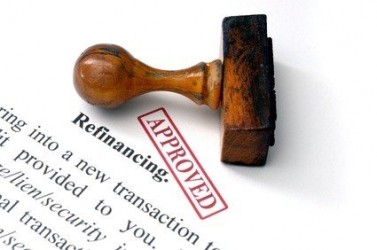When you are going through a divorce, one of the most contentious items that has to be resolved between couples is the fate of the house they have purchased together. There are a lot of emotions that go into settling a divorce case, in most cases, and settling all of these matters involved in refinancing mortgage after divorce can be frustrating and time consuming.
When neither of you can afford to keep the house payments up on your own, even after calculating child and spousal support, often the house needs to be sold and the proceeds divided according to your divorce decree. If one of you can afford to keep the payments up independently, though, often a refinancing is in order to make the payment terms more suitable to your new budget. After all, with attorney’s fees and the other expenses that go along with a divorce, adding a mortgage default to your current woes is definitely not something you want to do.
Refinance Home After Divorce
A lot of times, people refinance mortgages in order to take advantage of drops in the mortgage rate or other calculations that make refinancing worth the hassle and the closing costs. However, a refinancing that extends your terms or takes opportunity of lower interest rates can be a real lifesaver for a person who is taking on the entire mortgage that he had shared with his wife all to himself. Extending the term of the loan leads to lower monthly payments, which can be a real necessity depending on your current situation.
A common scenario in which this takes place involves a couple who has taken out a private loan in order to purchase a property for which they could not qualify for a bank loan. Even though the wife is a stay at home mother, the husband has only been at his current job for about a year and a half, and they don’t have the full 20 percent to put down. They don’t want to pay the high ratio mortgage insurance, and so they secure a private loan for the property. They take a term of two years and an interest rate of 8 percent. Their thinking is that their financial profile will improve during those two years so that they can easily go to the bank and replace that private loan with a traditional one. In the meantime, they will have built up some equity.
But then the couple goes through a divorce a year into the loan. They have paid half of the note’s payments, but there is still the rest of the note to go. Neither of them can afford these high payments on their own, but they don’t want to lose the house altogether. Enter Amansad Financial. We can help you find a lender, either private or traditional, to help you transition over to a longer term loan with lower monthly payments. Because the couple is divorcing, their income verification requirements will differ. The fact that the members of the couple are now single will change the calculations of income and credit. Instead of being evaluated as a couple, only the person indicating interest in staying in the property gets to count income and assets as a part of the application.
If the bank says no, Amansad Financial has the resources to connect you with any number of financing options in this sort of situation. The person staying in the house can apply for a long term traditional loan through a bank. The fact that the couple has made half of the payments means there will be a significant amount of equity in the house at the time of the loan (equity is one of the most strenuously argued areas in divorce cases that involve real property). This means a smaller loan amount, which may well lead to bank approval given the continued strong credit of the buyer and the fact that the buyer already owns so much of the value of the house.
Every situation is different. Eliminate the frustration of Refinancing your home after divorce. Contact one of our home financing specialists at Amansad Financial today. This is a complicated deal to pull off, with many factors involved. Going through your situation step by step with one of our specialists is the best way to make the right decision for your family’s needs.

